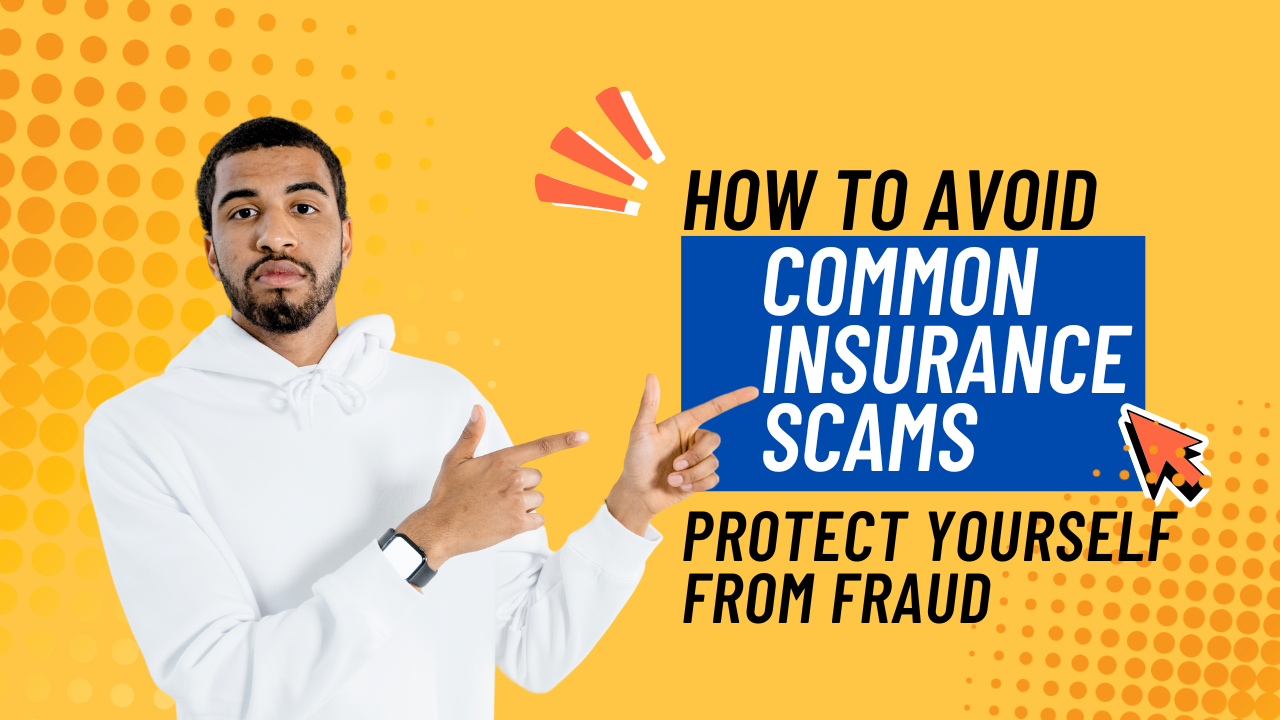Introduction: Why Avoiding Insurance Scams Matters
Insurance is meant to provide peace of mind during life’s most stressful moments—car accidents, medical emergencies, or natural disasters. But scammers have found ways to exploit the system, leaving unsuspecting victims financially and emotionally drained.
Avoid common insurance scams by staying informed, cautious, and proactive. From fake policies to staged accidents, this guide outlines the most prevalent insurance fraud tactics, how they work, and what steps you can take to avoid becoming a victim.
What Are Insurance Scams?
Insurance scams are deliberate attempts to deceive insurers or consumers for financial gain. These schemes can be executed by:
-
Fake insurance agents
-
Dishonest policyholders
-
Corrupt service providers (like repair shops or doctors)
According to the FBI, non-health insurance fraud costs Americans over $40 billion annually, contributing to higher premiums for everyone.
Why It’s Crucial to Avoid Common Insurance Scams
-
Financial Loss: Victims may pay for fake coverage or receive no payout after a claim.
-
Legal Trouble: You could unknowingly participate in fraudulent activities and face penalties.
-
Higher Premiums: Industry-wide fraud raises costs for all policyholders.
-
Emotional Stress: Dealing with fraud causes significant psychological and emotional strain.
Most Common Types of Insurance Scams
1. Fake Insurance Agents and Policies
How it works: Scammers pose as licensed insurance agents, selling fake health, auto, home, or life insurance policies. Victims pay premiums for nonexistent coverage.
Red Flags:
-
No verifiable license or company affiliation
-
High-pressure sales tactics
-
Requests for payment in cash or wire transfer
-
No policy number or follow-up communication
2. Staged Car Accidents (Auto Insurance Fraud)
How it works: Fraudsters intentionally cause car accidents and then file inflated injury or repair claims.
Watch for:
-
Sudden or erratic braking by the vehicle in front
-
Multiple passengers claiming exaggerated injuries
-
“Witnesses” who are oddly familiar with the other driver
3. Medical Billing Fraud
How it works: Healthcare providers bill your insurance for procedures you never received or exaggerate the costs of treatments.
Be alert if:
-
You see unfamiliar treatments on your Explanation of Benefits (EOB)
-
You’re pressured into unnecessary procedures
-
Your provider refuses to explain vague billing codes
4. Disaster-Related Insurance Scams
How it works: After storms, floods, or wildfires, fake contractors and adjusters offer fast repairs for upfront cash payments.
Warning Signs:
-
No physical business location or license
-
No references or reviews
-
Requests for full payment before work begins
5. Premium Diversion
How it works: A real or fake agent collects your premium but never submits it to the insurer, leaving you uninsured.
Signs of this scam:
-
No official policy documents or confirmation emails
-
Inability to contact the agent after payment
-
The insurer denies knowledge of your coverage
How to Avoid Common Insurance Scams
1. Verify the Agent’s License and Credentials
Always confirm your agent is registered through your state’s Department of Insurance. You can also use the NAIC’s Consumer Information Source to verify companies and agents.
2. Confirm the Insurer’s Legitimacy
Use trusted resources like NAIC.org to make sure the company is licensed to operate in your state. Avoid companies not listed on official directories.
3. Review the Policy Details Carefully
Read the entire insurance policy before signing. Make sure:
-
Coverage amounts and terms match what you were promised
-
Your name and details are correct
-
There are no vague or confusing clauses
4. Never Pay in Cash or Wire Transfer
Use traceable payment methods like credit cards, checks, or bank transfers. Avoid anyone who insists on untraceable forms of payment.
5. Get a Second Opinion
If you’re unsure about a medical procedure, auto repair, or policy recommendation, consult another licensed professional to avoid being misled.
6. Report Suspicious Activity
If something seems off:
-
Contact your insurance provider
-
Report to your state insurance department
-
Notify the Coalition Against Insurance Fraud or NAIC
What to Do If You Suspect You’re a Victim
-
Notify Your Insurance Provider Immediately
Share all communications, receipts, and policy information. -
Report to Authorities
Contact your state’s insurance regulator and local law enforcement. -
Freeze Financial Transactions
If you gave bank details to a scammer, notify your bank right away. -
Keep Detailed Records
Save emails, texts, payment receipts, and any documentation. -
Seek Legal Advice
An attorney can help you understand your rights and next steps.
